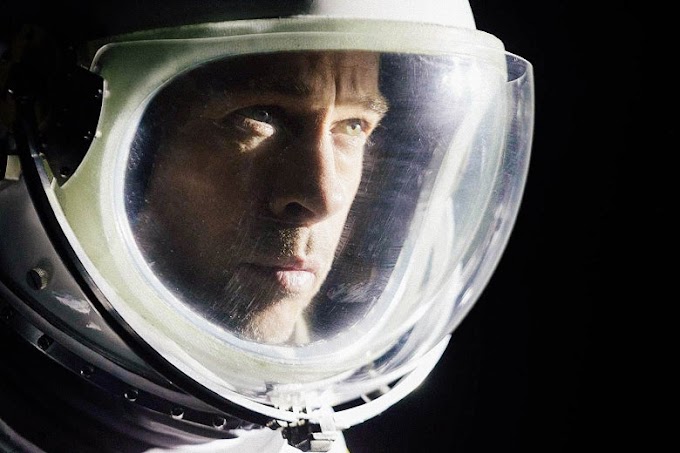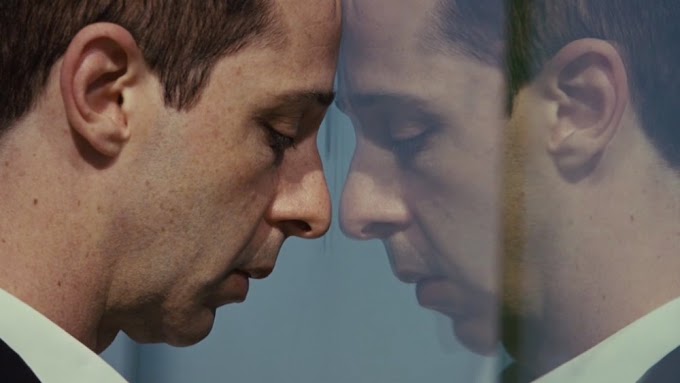Stuck on the dreariest rock in New England within a 19th century lighthouse is rookie keeper Ephraim Winslow (played by Robert Pattinson) learning the ropes from a jaded, weather-beaten Thomas Wake (Willem Dafoe). Behind them, there’s the monochromatic contrast of white surf on black rock highlighted against the piercing shrieks of gulls circling above, and everything in view is charged with meaning.
It’s a bleak watch for sure, made manageable only by the knowledge that director Robert Eggers made it so, on artistic purpose. The movie is a journey into the mind of the artist – Dafoe Pattinson Eggers – as much as it is a journey into the lives of two rosacea-ridden lighthouse keepers.
Homoeroticism and the pain of desire
With a fragmented story told by two unreliable protagonists, we must attempt to decode the keepers’ movements. Thomas, the elder keeper, disallows Ephraim from operating the light and Ephraim makes the mistake of trying to see what he’s up to. The blazing light is named a she and deemed a force of nature; Thomas cannot help himself but stand affront the light and tug himself off in ecstasy, dripping on poor Ephraim below.
The concepts of repression and masculine sexuality are key themes of the movie, highlighted by Eggers’ claustrophobic cinematography which forces the audience to face the characters’ unfulfilled desire head on. We watch as each character’s inner desire and lack of fulfilment (of closeness, of intimacy, of another life) begins to have an effect on their minds. Alcohol becomes a crux, the gulls develop human traits and the weather becomes very much an extension of our characters’ deep, creeping psychosis.
In amongst all this, the light is our characters’ beacon of hope. Although on land, both Thomas and Ephraim are very much at sea, sailing the rough storms of their own mortality and the light is a huge diversion – perhaps saviour – from such despair. Is the light a symbol of woman? I’d normally argue yes of course, women rule, but as the movie is more concerned with male psychology, I’d say it’s a model for the characters to latch onto more than it is a scheme by Eggers to convey that women = hope.
Influenced by psychologist Carl Jung, Eggers also goes big on the phallic symbolism, allowing the lighthouse itself serve as a central reminder of our protagonist’s virility (woo, go Gryffindor). With all this testosterone and nowhere to put it, the two men square off in a bid to gain dominance over the other. The more senior Thomas lies intent on maintaining his position of power while Ephraim openly questions the older man’s control. Thomas attempts to psych out the younger skipper, sowing seeds of fear by suggesting that they are stranded and should be rationing. He repeats a seafaring folk song and settles on superstition to train Ephraim into his way of life.
‘Look at ye pretending. But you well know yer lot’ - Thomas
Regardless of Thomas’ increasingly controlling behaviour, Ephraim maintains his own views – murdering a seagull in a direct contradiction of Thomas’ warning. In doing so, the movie is reflecting on the notion that age must give way to youth just as a rock must get worn down by crashing waves with enough time. Thomas’ rambling monologues tell of man and sea entwined in a violent dance, tentacles scrabbling at human flesh, perhaps in reference to man’s endless conflict with nature. Ephraim is no saviour either, to himself or anyone, eventually succumbing to all the craziness and turning savage in order to gain access to the light. The act of savagery committed however does not free Ephraim from his internal struggle but rather heightens it and the light, however bright, does not hold the redemption he seeks.
A morality tale in perpetual conflict, The Lighthouse combines folklore and traditional notions of moral damnation to paint a world stalked by darkness and insecurity. What is right and wrong in a world where psychological agony is a constant? How to escape? Apparently, the answer is; kill your teacher, take off all your clothes and writhe around on the rocks awaiting rescue before surrendering to the gulls.
A cheery watch by no counts but full marks to Eggers for capturing audience discomfort and delivering the reality of psychological frailty in such a way as to keep my eyebrows on the top of my head for a full two hours. A must-see in some circles!








0 Comments